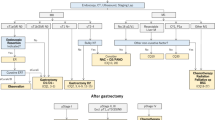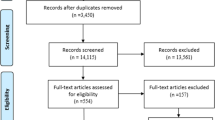Abstract
Background: In recent years, patient-reported outcomes such as health-related quality of life have become important areas of clinician focus in general cancer management. Patients’ preferences for, and/or satisfaction with, oral versus intravenous (IV) chemotherapy schedules may have a major impact on such outcomes.
Objective: To evaluate preferences for oral or IV chemotherapy in patients with advanced colorectal cancer.
Methods: A multicenter, randomized, crossover trial was conducted in 12 hospitals in Southern Italy, in which 22 patients with advanced colorectal cancer received one cycle of oral capecitabine ± irinotecan or oxaliplatin, followed by one cycle of an IV de Gramont or similar regimen (arm A), or the same regimens in reverse order (arm B). Patients were aged 50–70 years and 21% had a higher level of education (graduate or similar). Patients received oral capecitabine 3500 mg/m2/day for 7 days (± irinotecan 180 mg/m2 or oxaliplatin 85 mg/m2 on ay 1 only), followed by an IV de Gramont regimen ± irinotecan (FOLFIRI) or oxaliplatin (FOLFOX); or the two schedules administered in reverse order. The main outcome measure was patients’ preferences for oral versus IV chemotherapy, as determined by a pre- and post-treatment therapy preference questionnaire (TPQ).
Results: Before treatment, 75% of patients preferred oral therapy. Characteristics that patients considered to be important were that treatment should not interfere with daily activities (100% of patients) and should not cause fatigue (95%), diarrhea (76%), or painful mouth ulcers (76%); other factors considered important were the risk of infection and nausea (90%), and that treatment could be administered at home (65%). After receiving both chemotherapy schedules, only 45% of patients preferred oral therapy, while 55% preferred IV therapy. Among the latter, the most important characteristics influencing treatment choice were less nausea (66%), fewer mood effects (65%), the safety of hospital IV treatment (62%), less interference with family relationships (55%), less vomiting (55%), less interference with daily activities (50%), and less diarrhea (50%). Although the order in which patients received therapy did not influence treatment preference, significantly fewer patients with a lower rather than higher educational level preferred oral therapy (47% vs 80%; chi-square test = 9.9; p = 0.002).
Conclusion: These results suggest that there may be a correlation between educational level and the preference of patients with advanced colorectal cancer for oral or IV chemotherapy.



Similar content being viewed by others
References
Gujral S, Conroy T, Fleissner C, et al. Assessing quality of life in patients with colorectal cancer: an update of the EORTC quality of life questionnaire. Eur J Cancer 2007; 43: 1564–73
Gujral S, Avery KN, Blazeby JM. Quality of life after surgery for colorectal cancer: clinical implications of results from randomised trials. Support Care Cancer 2008; 16(2): 127–32
Siena S, Peeters M, Van Cutsem E, et al. Assocation of progression-free survival with patient-reported outcomes and survival: results from a randomised phase 3 trial of panitumumab. Br J Cancer 2007; 97: 1469–74
Hansen RM, Ryan L, Anderson T, et al. Phase III study of bolus versus infusion fluorouracil with or without cisplatin in advanced crolorectal cancer. J Natl Cancer Inst 1996; 88: 668–74
Poorter RL, Lauw FN, Bemelman WA, et al. Complications of an implantable venous access device (Port-a-Cath) during intermittent continuous infusion of chemotherapy. Eur J Cancer 1996; 32A: 2262–6
Schwarz RE, Coit DG, Groeger JS. Transcutaneously tunneled central venous lines in cancer patients: an analysis of device-related morbidíty factors based on prospective data collection. Ann Surg Oncol 2000; 7: 441–9
Frank JL, Garb JL, Halla B, et al. Ionic implantation of silicone chronic venous access devices does not alter thrombotic complications: a double-blinded, randomized clinical trial. Surgery 2001; 129: 547–51
Hartkamp A, van Boxtel AJ, Zonnenberq BA, et al. Totally implantable venous access devices: evaluation of complications and a prospective comparative study of two different port systems. Neth J Med 2000; 57: 215–23
Nightingale CE, Norman A, Cunningham D, et al. A prospective analysis of 949 long-term central venous access catheters for ambulatory chemotherapy in patients with gastrointestinal malignancy. Eur J Cancer 1997; 33: 398–403
Verso M, Agnelli G. Venous thromboembolism associated with long-term use of central venous catheters in cancer patients. J Clin Oncol 2003; 21: 3665–75
Kuter DJ. Thrombotic complications of central venous catheters in cancer patients. Oncologist 2004; 9: 207–16
Payne SA. A study of quality of life in cancer patients receiving palliative chemotherapy. Soc Sci Med 1992; 35: 1505–9
Rischin D, White MA, Matthews JP, et al. A randomised crossover trial of chemotherapy in the home: patient preferences and cost analysis. Med J Aust 2000; 173: 125–7
Miwa M, Ura M, Nishida M, et al. Design of a novel oral fluoropyrimidine carbamate, capecitabine, which generates 5-fluorouracil selectively in tumours by enzymes concentrated in human liver and cancer tissue. Eur J Cancer 1998; 34: 1274–81
Liu G, Franssen E, Fitch MI, et al. Patient preferences for oral versus intravenous palliative chemotherapy. J Clin Oncol 1997; 15: 110–5
Van Cutsem E, Hoff PM, Harper P, et al. Oral capecitabine vs intravenous 5-fluorouracil and leucovorin: integrated efficacy data and novel analyses from two large, randomised, phase III trials. Br J Cancer 2004; 90: 1190–7
Twelves C, Wong A, Nowacki MP, et al. Capecitabine as adjuvant treatment for stage III colon cancer. N Engl J Med 2005; 352: 2696–704
Data on file, Bristol-Myers Squibb
Douillard J-Y, Twelves C, McKendrick J, et al. Pharmacoeconomic analysis of capecitabine in the adjuvant setting: results from the X-ACT trial comparing capecitabine with 5-FU/LV in patients with Dukes’ C colon cancer [abstract 274PD]. Ann Oncol 2004; 15: iii73
Cassidy J, Douillard J-Y, Twelves C, et al. Pharmacoeconomic analysis of adjuvant oral capecitabine vs intravenous 5-FU/LV in Dukes’ C colon cancer: the X-ACT trial. Br J Cancer 2006; 94: 1122–9
James R, Blanco C, Farina C. Savings in staff time as a result of switching from De Gramont to oral capecitabine for patients with advanced colorectal cancer. Eur J Cancer 2003; 1Suppl. 5:S83
Borner MM, Schóffski P, de Wit R, et al. Patient preference and pharmacokinetics of oral modulated UFT versus intravenous fluorouracil and leucovorin: a randomised crossover trial in advanced colorectal cancer. Eur J Cancer 2002; 38: 349–58
Twelves C, Gollins S, Grieve R, et al. A randomised cross-over trial comparing patient preference for oral capecitabine and 5-fluorouracil/leucovorin regimens in patients with advanced colorectal cancer. Ann Oncol 2006; 17: 239–45
Hoff PM, Ansari R, Batist G, et al. Comparison of oral capecitabine versus intravenous fluorouracil plus leucovorin as first-line treatment in 605 patients with metastatic colorectal cancer: results of a randomized phase III study. J Clin Oncol 2001; 19: 2282–92
Hirawat S, Kolitz J, Lichtman S, et al. Sequential irinotecan and capecitabine (Xeloda) given every other week in the management of advanced metastatic carcinoma: a phase I study [abstract 2127]. Proc Am Soc Clin Oncol (ASCO) 2002 Annual Meeting: 2002 May 18–21; Orlando (FL) [online]. Available from URL: http://www.asco.org/ASCO/Abstracts+&+Virtual+Meeting/Abstracts?&vmview=abst_detail_view&confID=16&abstractID=2127 [Accessed 2008 Sep 15]
Scheithauer R, Kornek GV, Raderer M, et al. Intermittent weekly high-dose capecitabine in combination with oxaliplatin: a phase I/II study in first-line treatment of patients with advanced colorectal cancer. Ann Oncol 2002; 13: 1583–9
Acknowledgments
English language and technical editing support for the preparation of this manuscript was provided by Luca Giacomelli, Wolters Kluwer Health Medical Communications. This support was funded by Roche. The authors have no conflicts of interest that are directly relevant to the context of this study.
Author information
Authors and Affiliations
Corresponding author
Electronic supplementary material
Rights and permissions
About this article
Cite this article
Mastroianni, C.M., Viscomi, C., Ceniti, S. et al. Preferences of Patients with Advanced Colorectal Cancer for Treatment with Oral or Intravenous Chemotherapy. Patient-Patient-Centered-Outcome-Res 1, 181–187 (2008). https://doi.org/10.2165/1312067-200801030-00005
Published:
Issue Date:
DOI: https://doi.org/10.2165/1312067-200801030-00005




